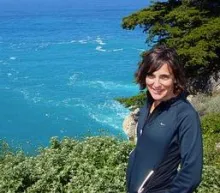
Microorganisms involved in the nitrogen and carbon cycles feed the base of the food web and directly affect global climate. Both of these cycles are heavily impacted by human activities but for most regions of the ocean, the resolution of biological and chemical datasets is too low to accurately forecast the resulting effects on microbial processes. High-resolution data collection in natural oceanic gradients delivers a quantitative understanding of the distributions and activities of organisms involved in key chemical transformations, relative to environmental parameters.
In order to obtain high-resolution biological datasets from marine systems, our group develops deployable biosensing technologies to detect key functional genes and transcripts from microbes involved in biogeochemical cycling. My research in marine microbiology involves the sequencing and analysis of environmental metagenomic and metatranscriptomic datasets to understand ocean metabolism and to inform probe design, the development and optimisation of molecular biological assays for autonomous instrumentation, and the design, development and implementation of genetic sensing and sampling technologies in the ocean.
Research in recent years has involved the development of environmental DNA tools to measure ecosystem change and its impacts, including harmful algae, invasive species and marine protected areas.
Head of Ocean Technology and Engineering
Specialisation in marine microbiology and molecular ecology using 'omics technologies, environmental DNA and biosensors
- Executive Board Member: Ocean Biomolecular Observing Network: IOC-UNESCO Ocean Decade for Sustainable Development endorsed programme
- Global Ocean Observing System (GOOS) BioEco Panel Expert (2024-present): Lead author of the Microbial Biomass and Diversity EOV Specification Sheet (first draft)
- G7 Future of the Seas and Oceans Initiative: Marine Life, UK Expert representative (2023-2024)
MARine COastal BiOdiversity Long-term Observations (MARCO BOLO): Explainer here; Lead of WP4 Mapping Biodiversity with Autonomous Systems
EQUIFy - Establishing a Framework for Quantifiable Evidence and Impact of Ecosystem Change Throughout the Lifecycle of UK Floating Offshore Wind Farms (NOC Lead); Lead: Matthew Palmer, PML
Atlantic ECOsystems Assessment, Forecasting & Sustainability (AtlantECO); NOC Lead